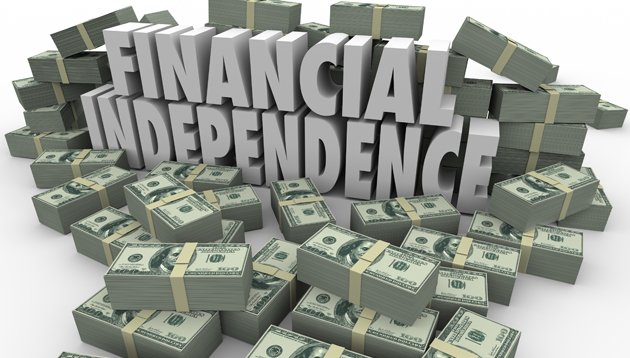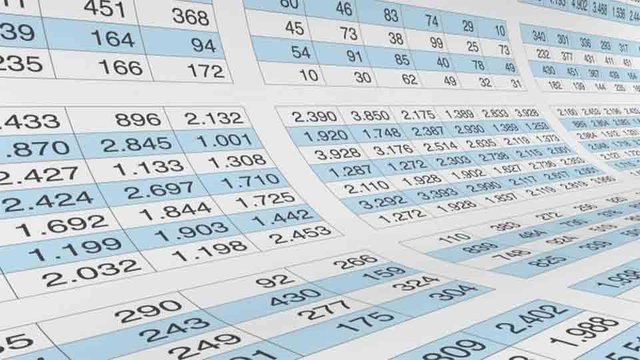An attainable path to FI (Financial Independence)

FI is a popular and trending topic of conversation in the western world, particularly in the USA. It represents attaining a place in life where you are no longer reliant on an income from a job, have the freedom to choose what you want to do, etc. Many consider it "early retirement", and there are some that have attained this even as young as before they turned 30 years old.
It gives hope to the millions of us that work a boring job, sweat 12 hours a day feeling like we can't make enough money to pay the bills for the month, are burdened with student loan debt that never feels like it will be paid, etc. It is not surprising that this will be a growing and popular topic. I hear there is a full-featured movie coming out about FI in the near future.

The problem is that those of us that hear about FI well into our 30s and beyond, might feel like the mountain to climb it is an impossible task. Sure, if you are 20 yrs old and you get your first job, you can save the 75% of your income and build up an investment portfolio early on, while you are living like your are in college, and you have a decent chance at independence. But if you are well on your way in life, have a family, a mortgage, car loans, health insurance, etc. then you are so heavily burdened that saving any money might be impossible.
Sure there are plenty of people out there who will tell you how to save a few bucks each month. But it's not enough. Unless you sell your home, rent some room in a shitty building, etc. you really can't do this. Maybe if you have your spouse onboard with it, you might get a shot, but it's a long shot. At best you might be able to curb some unnecessary spending and take some pressure off. But then when you least expect it, some emergency comes along and wipes you out. You know the drill.
Financial Sustainability first
I would suggest that FI is a long game. And you have to be patient for it. However there are ways to live a good, fruitful and decent modern 21st century life, without having to become Gandhi on the road to FI. I call this "Financial Sustainability". It basically means having two parallel paths for your finances.
Think of it like a checking & a savings account as your bank would give you. Checking is your immediate financial bills, etc. and savings is your long term financial savings. That's simple enough, because most of us have that. But what if you had ways to generate income that didn't involve you investing a lot of time into them, and they would pour money into your savings, while you focused on the day to day life expenses that are needed.
Often these forms of income are referred to as "passive income streams". But that is just words. What I'm talking about is Assets. Rather than spending your money on things that will either be obsolete (ie. new phone, new car, new TV, new computer, etc.) you focus on spending your money on things that make you money. That could be a vending machine, rental real estate, shares, blogging, etc. Things that might involve some time investment up front, but less over the long term. I mean you have enough on your plate keeping the boss happy.
The goal here is to become sustainable - that is the income coming in from assets becomes enough to cover your day to day life expenses. When you reach that "nirvana", you are free. Free to quit your job, and grow your assets. Or maybe you love your job and never want to quit it? Sure, but wouldn't it be so much nicer if you didn't have to work for money?
How do you measure your progress?
There is nothing magical here. What you need to do is identify what it truly costs you to live based on you and your family's use case. Be realistic in that the items you list here must represent what will keep everyone happy, without being overly consumption based. I mean if you really don't need cable TV, cut the cord and lose the bill. If there are cheaper cars that will do the job, consider those or take public transport. But don't create something you cannot sustain for the long term. Remember this is a long game. If you can't see yourself living with the budget you create in 3 years time, then it's not realistic and you will fail. Make goals achievable.

Keep in mind that if you are trying to create a monthly number, you may find that life is a bit more seasonal than that. Holidays will cost more, vacations need to be factored in, etc. And remember things WILL get more expensive over time. Build in something for inflation. I would try and get a yearly budget, and then divide it by 12 to get a more reasonable monthly number to work with.
Once you have that number, then you need to create a separate spreadsheet that shows your income, but you need to split it into "Active" (your job, business, etc.) and "Passive" (your asset dividends, cashflow, etc.). The goal here is simple - Passive must exceed your monthly number. If it doesn't, you need to start to focus on how to make it do that.
Just saving a bunch of money in hope that if you save $1 million, you can live off the dividends is a goal few will achieve, and few can maintain. But if you think that buying a $5000 vending machine, and partnering with your local shopkeeper to put it out the front of their well visited place might generate some income, then you could realistically pay it off and generate the income from it. You will need to visit and re-stock it, and there will be some theft and vandalism, but after some time, you will be free and clear to keep your share of the profits and generate an input to your passive income numbers. You will need 10 of these "feeders" that will allow you to have some that make great money, and some that are duds. Just like any venture capital investor, they assume that 10 investments will have 1 super star, 2 that break even and the rest are probably duds. The duds are great tax deductions, BTW...
Each month you need to update your spreadsheet and plot the progress of your passive income stream. When the day finally comes that it exceeds your monthly number, you have reached financial sustainability.
What happens after financial sustainability?
At that point, you should be able to save a massive amount of your active income (if you choose to continue to work). At the rate of savings and the organic increase in passive income as your investments in the assets are paid down and you own the "goose that lays the golden eggs", you can increase your savings rate so fast that you will have not only the continual income of the assets, but a fast increasing savings portfolio that you can start to direct towards less labor intensive asset management items. Maybe you might want to buy a percentage of someone else's business and let them run it? Maybe you want to speculate with crypto-currencies or something like that? Maybe you want to internationally diversify your investments? Maybe Vanguard Index funds? Whatever floats your boat.
Remember "Life Happens"
It is naive at best to think that if you reach FI and go and live on a beach somewhere at the age of 30, you've done it. The reality is that you probably haven't had any adverse events in life, such as motor vehicle accidents, health issues, family deaths & emergencies, natural weather events, etc. We would normally call that "you haven't been around the block yet". It is going to happen, so be prepared for it. You don't need to become a prepper, but the fact is that our world will hurl at you challenges when you least expect it and you need to be prepared.
.jpg)
This could come at any moment - whether on the journey to FI or when you get there. Your ability to surf through the choppy waters is crucial, so be an expert surfer. Become a disaster prepared person for you and your family. Think of the worst thing that could happen, and have some plan for it. Then every 3 months test your plan, like a fire drill.
Also remember - if you don't have a family of your own yet, you probably will. How will carrying the burden of many others on your back work with your FI plan? I hear many 20 something folk talking about how they don't need to buy real estate to live in and will rent for the rest of their lives, but they neglect to embrace the stability of controlling their own shelter. Landlords may not renew their leases, or may sell the building. They have to constantly be prepared to move at any moment, and this is a burden that putting on their kids might not work for many. Stability can be a good thing, particularly with children, so I would think long term here. Be realistic in your life goals because they will be tested with changes and challenges at any moment, and you need to be fit & healthy and ready to react.
Retirement
I hate the word "retirement" but that is me. To me it signals an end of effort, which isn't necessarily tied to an end of work for a boss. If you have a financial sustainability plan in effect and you can become self-sufficient with it to the point where you don't need a boss, you have achieved most of what you need here. FI then becomes creating an income stream that doesn't require you to do anything - not even get out of bed.
That is probably what most people think of as retirement. But there is a long chasm of time that passes from when someone leaves education and enters the work force, to when they choose to leave the workforce and retire. Many feel that they will never do that. If that is by choice, then fine. But if it is because they can't, that's simply because they never created any wealth in assets in their life, and consequently they have nothing that will generate them income when they are no longer able to do it for themselves.
The earlier you start creating financial sustainability, the more likely you will be in a position to achieve financial independence and "retire". But be careful not to focus on retirement as playing golf all day, or sitting on a beach, etc. You will get bored with that really quick, and you should see it as gaining time back to pursue what you want to learn about yourself in life. Who knows, you might learn something you never expected.
Summary
FI is a very romantic concept, particularly if you need hope that your day in the life can change for the better for you and your family. But it is a long game. You need to get from here to there, and the best and most comfortable road to take is "Financial Sustainability Freeway".
Go forth and be great.
Hi @k0d3g3ar,
You've outlined some very practical steps to take in reaching Financial Independence, and can benefit from Financial Sustainability first, but I don't think an outline of steps can actually do the job - at least not in most cases.
What's required is a vision, a strong vision and the motivation required to commit to that vision. In my life, a vision and faith in that vision has done more for me than the actual steps I planned ahead of time.
~ @chrisrice
Thank you for taking the time to comment on my blog entry. I agree that you need a vision and a discipline to follow it, despite the ups and downs of life. However I do find a lot of people I've met (and I'm in my 50s now), have put aside their own personal accountability and only focus on their faith. The issue there is that unless you are willing to crunch the numbers on what your actual realistic costs are, you can't have anyway to know if you are heading in the right direction. So despite your commitment to your journey, you need a map. Spending the time to know your numbers will give you the path and then to add your vision and faith to that, has to result in success.
I would challenge any reader to apply this filter to any vision though.... "Be careful what you wish for because when you get it, you might not like it". I have that issue from time to time. Right now I am saving to purchase real estate in Latin America with cash. However I've never lived there, so I have to spend time to AirBnB in that region for months to determine if my goal is worthwhile. I'm lucky enough to be at FI now which has taken me 20 years to achieve. But on the path to having multiple homes around the world, I have to be realistic that if I want to apply myself to achieving that, it should be something that I really want. Otherwise I'm just accumulating liabilities that I may not need.
How will I get there? Since I already have the assets in place to generate income, and I have amassed enough wealth to never have to work ever again, the assets generate sufficient surplus wealth to allow me the option to speculate like this. But if I had just ventured on some path without the goal of acquiring income generating assets 20 years ago, I would not be in this position today. I didn't do anything super smart to get there - I just didn't do anything stupid.
So I agree with your premise, but would add that faith, vision & motivation is a needed part of the equation, but you have to add the "don't be stupid" factor to this. FI is not anything that you have to be some super genius to achieve. You just can't be stupid, and with a long game plan, you will be completely self-sustainable and independent and never have to worry about where your next dollar will come from.
Good luck and god speed.
Thanks for the reply @k0d3g3ar I agree in the don't be stupid rule but I think there are also exceptions. Some things might seem stupid to one person, or even many people, but it can still get results.
I am not sure about this but I tend to believe that the events in our life are a mere reflection of our conscious and unconscious desires & beliefs. If I am right, it might be more appropropriate to say 'KNOW' what you wish for.